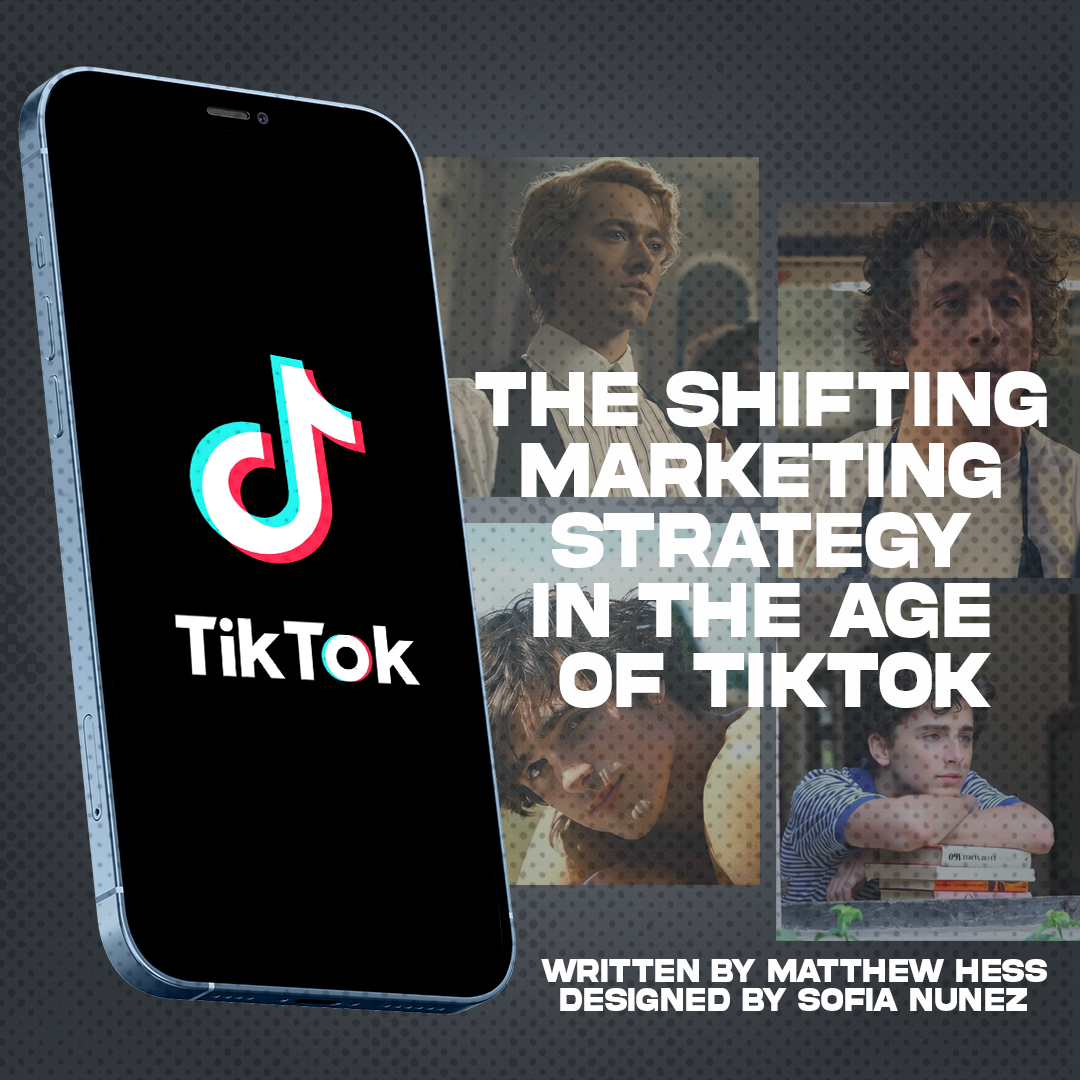
The “white boy of the month” trend, often embraced by people online, may have more weight than previously understood. A recipient of said title is often a male actor with a new movie or show that has recently released, garnering the attention of the online community. Mass media sites and personalized content have made parasocial relationships easier than ever. Audiences are falling victim to well crafted marketing schemes that capitalize on the fast paced, obsession-based attention spans of viewers. Users will consume large amounts of content on a singular person, believing that they are doing so naturally and without clear intentions. They form a one-sided relationship with the celebrity, often believing they could be real friends if given the chance. These relationships, however, may not be as coincidental as expected.
In many cases, the ability of an actor to create content that generates these parasocial relationships directly coincides with the success of their project. Take Jacob Elordi as an example. Starring in the movie “Priscilla,” he played a predatory and emotionally abusive Elvis Presley in his relationship with a young Priscilla, the fourteen year old daughter of an American Air Force Officer. One would think that this role would not provide the opportunity for the actor to be idolized. However, TikTok videos quickly spread about the actor’s looks in the movie and viewers played into the fact that they knew they shouldn’t like him in this role, but couldn’t help themselves.
“Priscilla” was just the beginning. Elordi’s following film, released just three weeks after “Priscilla,” took him to another level of fame. His role in “Saltburn” gave the internet exactly what they wanted: a rich, good-looking character full of sexuality and vice played by Elordi. Although the movie’s initial box office results were not groundbreaking, Elordi’s popularity grew exponentially. The movie became a massive success as it quickly became available on Prime Video to a much larger audience. It allowed hardened actors, such as Barry Keoghan and Rosamund Pike, to be recognized by mainstream media. The extent of Eloridi’s role in that, of course, can be debated, however, it should not be ignored.
Stars are being made out of the most random circumstances. Jeremy Allen White, for example, has a massively successful show called “The Bear.” While the show catapulted him into stardom, his recent campaign with Calvin Klein is what truly caught the eye of the online community. TikToks were created to talk about the pictures, directing everyone to look for themselves. Although White was one benefactor of the campaign, the company also succeeded astronomically. The campaign was fully intended to bolster the brand’s image as “cool” and “trendy,” and achieved just that. TikTok allows companies such as Calvin Klein to compound their advertising reach by engaging users so much that they create their own content about the brand, furthering the reach of the advertising impact.
As a result, production companies are adapting to the shifting online culture of limited fame. As TikTok elevates someone new each week, it is harder and harder to remember who everyone was obsessed with the month prior, resulting in the coined term “white boy of the month.” At its inception, there was no telling who would become the center of a new trend or obsession, which many found appealing about the app. The users could choose who they liked; they weren’t only seeing celebrities that casting directors expected them to like. Companies started to utilize the global reach TikTok possessed, creating accounts and trying to advertise their products or services in appealing TikTok videos. The language learning app Duolingo is a great example. Its mascot became a sensation, amassing millions of views and large engagement by users who view the content as entertaining. At the end of the day, however, Duolingo has the account purely for marketing purposes.
With this in mind, it would be foolish not to assume production companies are not doing the same thing. They are aware that public attention does not last as long as before, but its potential short-term attention can be greater than ever. Although this makes being an actor more competitive than before, production companies are likely happy with this change in culture. Movies are being made constantly, and initial online engagement with the material can make or break a movie’s success.